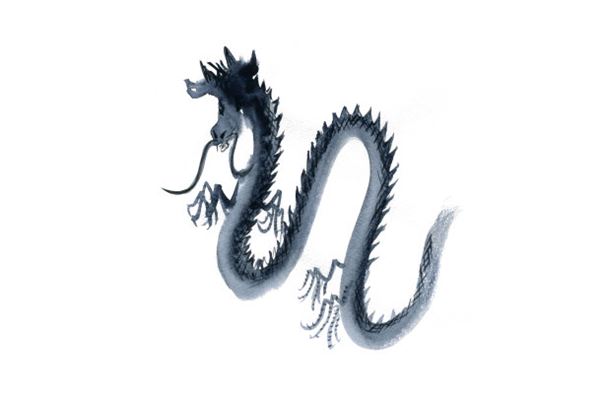Duke of Zhou, the master of dream interpretation
Duke of Zhou, the master of dream interpretation
After entering the age of civilization, the Chinese invented writing, and people used writing to record all kinds of things. According to modern archaeological findings, Chinese records of dreams can be traced back to the oracle oracle divination materials of Yin people and the classification of dreams beginning in the Shang and Zhou dynasties. This shows that dream interpretation culture is an indispensable and important part of ancient Chinese culture, which is widely spread among the people. The interpretation of dreams, which began in the time of the Yellow Emperor, was inherited and developed by the witches of the Yin and Shang dynasties. People tried to find the real future and predict the fate from the blurred dreams.
The unity of heaven and man and the sense of heaven and earth are the philosophical views of ancient Chinese people to understand the world. The interpretation of dream signs and the fact that a large number of fulfillments make people believe that dreams can augur good or bad luck. The vast majority of the inscriptions left by Yin and Shang dynasties are inscriptions, and the content of dreams and auspiciousness also accounts for a large proportion. Later, Zhou took the place of Shang. On the basis of his predecessors, Zhou Gong summed up the dream interpretation of the previous generation and really created the theory of dream interpretation.
Duke Zhou, named Ji Dan, was the fourth son of King Wen of Zhou and the younger brother of King Wu. He was a famous politician in ancient China. He twice assisted King Wu in attacking King Zhou in the east, and made rites and music to rule the world. Because his estate was in Zhou, the Lord was called the Lord of Zhou. When he was King Wen of Zhou, he was very filial and kindhearted, and assisted King Wu in attacking Zhou and sealing him in Lu. The Duke of Zhou did not go to the state of Feng, but stayed in the dynasty, assisting King Wu, and establishing social stability and institutions for Zhou. King Wu collapsed, and assisted the king regent. The Duke of Zhou is a model of later generations of political leaders and enjoys a high status in Confucian culture. The Duke of Zhou is a figure that frequently appears in Confucius' dreams. In China, where Confucianism has long dominated culture, the Duke of Zhou is inevitably directly associated with dreams. The dream is often referred to as 'Duke of Zhou's dream' or 'dreaming of Duke of Zhou'.
Different from Yin people, Zhou people put more emphasis on auspicious dreams. One development of the Duke of Zhou's interpretation of dreams is to use stars to interpret dreams. This accounting method involves Yin and Yang, the five elements, the sun, the moon and the stars, the knowledge is quite professional, ordinary people rarely start, most of them are very effective. In Zhou Dynasty, dream reading showed a diversified trend. Besides symbolic and astrological dream reading, traditional divination also existed. The king of Zhou sometimes combined divination, divination and dream interpretation to analyze and judge the fate of the individual and the country.
Zhou Gong also wrote a dream book, the style of the book is to list the dream image first, and then make the interpretation. The dream books that appeared later also had the basis for breaking the dream before the dream image, that is, first narrating the dream and breaking the dream. There is a logical inner connection between the dream image and the dream, and the meaning of the dream is inferred directly from the properties of the dream image. Of course, the same dream, different interpreters from different angles can derive different attributes, so the interpretation of the same type of dream varies from person to person. The theory of dream books does not infer the properties of dreams from the perspective of common sense, but deduces them from historical dream examples. Most dream books use the direct dream method, which is the most commonly used method in ancient dream interpretation. The so-called direct dream method is to link the content displayed in the dream with the real life at that time, and the good and bad fortunes reflected in the dream are the good and bad fortunes in reality. The straight dream method is divided into two types: complete straight dream and result straight dream. Completely straight dream, is to interpret the dream of the small concept in the dream symbol conversion, involves a wide range of knowledge, to understand the I Ching, it is not as easy as simple word measurement, so it is only spread in a small number of I Ching scholars. The result of direct dream means that the specific details in the dream are not necessarily reflected in the later life practice, but the results of its prediction of good and bad luck are consistent with reality.
Zhou Gong's dream interpretation thought was also mixed with the influence of the book of divination 'I Ching' at that time, Zhou Gong believed that the Yi Tao was broad and inclusive. Taking things far away, taking bodies near, almost any small, changing signs of things, can be assisted by easy images into divinations, and therefore have certain signs. Therefore, Yi Tao can also be applied to dream interpretation, that is, according to the individual dream image, Yi reason to explain its perplexity.
During The Three Kingdoms period, Deng Ai of the State of Wei was the chief general of the war against Shu. The situation was very dangerous. I didn't know what the outcome would be. Deng Ai was on edge all day. One night, Deng Ai had a very strange dream, sitting on the mountain, there is water on the mountain, but there are no other images, Deng Ai was confused. So, he went to ask the guard Yue Shao. Shao said that the dream could be interpreted according to the Yi principles mentioned in the Duke of Zhou Interprets Dreams. According to Yi Gua, there is water on the mountain, which is 'water mountain Jian' Gua. Unfavorable to the northeast and conducive to the southwest. Confucius said, 'Jian, Li southwest, to the success.' If it is unfavorable to the northeast, its road is poor.' This hexagram is very unlucky. If you go to attack the Shu State, it can be regarded as Li Southwest, because 'to have merit.' That is to say, what is going on now, it will succeed. But why not? Because, to the southwest, can do good. After going to the 'southwest', you must return to the 'northeast', that is, the original place. However, this divination clearly states that it is unfavorable to the Northeast, that is, there is the image of 'there is no return'. In other words, to interpret the Yi Tao to dream of sitting on a mountain and having water means that you will not be able to return in the future. No return, which means death.
Deng Ai was very unhappy and did not believe it. As a result, Deng Ai captured the Shu state, became proud and arrogant, and was seized by Zhong Hui, falsely accused Sima Zhao of rebellion, Deng Ai was arrested and sent back to Luoyang to be executed. This example shows that the Yi theory is extensive and can be used to interpret dreams.
According to legend, the Duke of Zhou wrote the book 'Interpreting Dreams' based on his many years of experience, which is very popular among the people. According to the interpretation of the Duke of Zhou, people could predict good or bad luck from their dreams. Later in the folk circulation, outstanding dream interpreters have added their understanding into it, but in order to express their reverence for the Duke of Zhou, people called this book 'The Duke of Zhou Interprets Dreams'.
Chinese dream interpretation originated from two outstanding figures in Chinese history - Huang Di and Zhou Gong. The principle of psychodynamics is adopted in dream interpretation, emphasizing the social and cultural background of dreams and the interrelationship between dreams and reality, helping people to deal with and resolve inner conflicts. The theory of psychoanalysis has put forward a new view on dreams, which has been proved to a certain extent by the successful practice of dream interpretation. Psychoanalytic theory suggests that there is another hidden meaning beneath the absurd and meaningless surface of dreams.
Therefore, the interpretation of dreams by Duke Zhou is not a superstition, but has its scientific basis, and is a precious heritage left by traditional culture to later generations.
 Dream of each other's love words
Dream of each other's love words  Black Dragon
Black Dragon